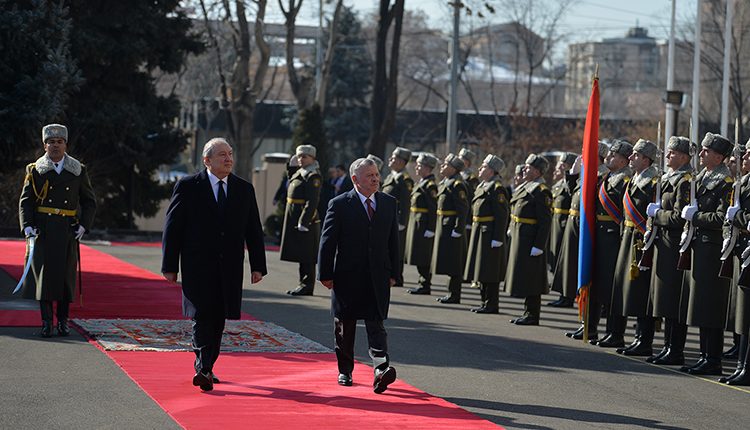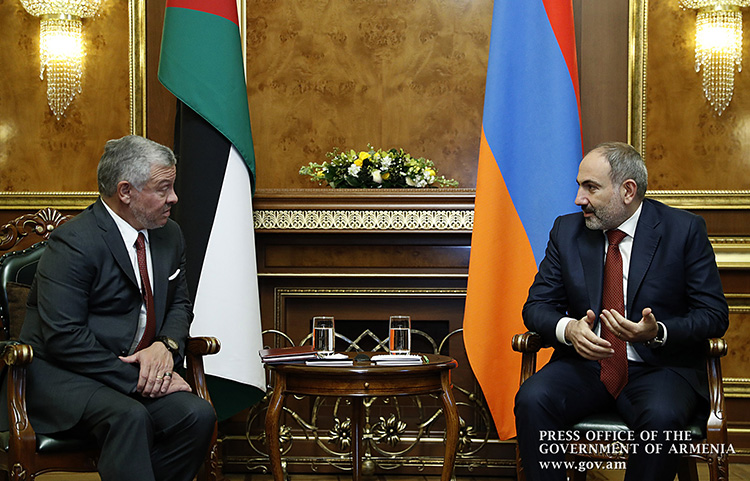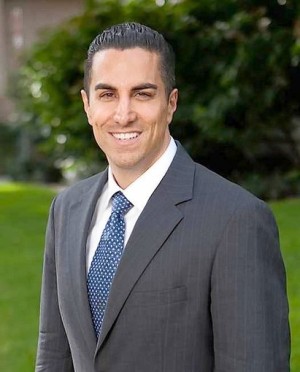YEREVAN — Jordan’s King Abdullah spoke of similarities between his country and Armenia, voiced support for closer bilateral ties and praised the centuries-old Armenian presence in the Middle East during an official visit to Yerevan on Tuesday.
He also called for Armenian support for his position on the status of Jerusalem after holding separate talks with President Armen Sarkissian and Prime Minister Nikol Pashinyan.
Both Armenian leaders described Abdullah’s first-ever visit to their country as “historic” during the talks that seemed to have focused on ways of boosting Armenian-Jordanian economic ties. Sarkissian was satisfied with the “wonderful discussions with His Majesty.”
“I’m very glad that … relations between our countries are reinvigorated and we have already concrete results,” Pashinyan told the Jordanian monarch at the start of their meeting.
“Our two countries and peoples have carved a niche for themselves in today’s modern world, all the while remaining true to their identities, their cultures and faiths,” Abdullah said in a speech delivered at the presidential palace in Yerevan later in the day. “And Jordan, much like Armenia, has made its human capital the main driver of its journey towards development. Our countries have much to gain from cooperating to capitalize on this promising potential.”
“Although this is our first official visit to your beautiful country, we feel we are among family, and in fact we are family,” he declared.
Abdullah went on to lavish praise on Jordan’s Armenian community. “Thousands of Jordanians trace their roots back to Armenia,” he said. “They do honor to both of our countries and play vital roles in the arts, education, public service, business and much, much more. And they form the solid bedrock on which our friendship continues to grow and flourish.”
The community mainly consists of descendants of survivors of the 1915 Armenian genocide in Ottoman Turkey who had taken refuge in what is now Jordan. Sarkissian stressed that it was Abdullah’s great-great-grandfather, Emir Hussein bin Ali of Mecca, who urged Arabs to shelter them.
“I would like to bow to the great memory of your ancestor and your family and to tell you the thanks from my nation,” the president told Abdullah.
“Our joint history extends far beyond that,” the king said for his part. “Armenians in the Middle East are part of the oldest Christian community in the world. They are an integral part of our region’s past … and we look to work with you to make sure they continue to play such a role in shaping its present and creating its bright future.”
In that context, Abdullah pointed to the existence of an ancient Armenian quarter in Jerusalem and his religious custodianship of the city’s Muslim, Armenian and other Christian worship sites.
“Preserving the city’s identity and its legal status, as well as the historic status quo in relation to holy sites, Islamic and Christian alike, is going to be key,” he said. “So we look to Christian leaders and friends like you and around the world to work with us in safeguarding Jerusalem as a unifying city of peace.”
Jordan is reportedly concerned about an Israeli-Palestinian peace plan put forward by the United States. Amman has been particularly sensitive to any changes of status in Jerusalem after U.S. President Donald Trump’s decision to recognize it as Israel’s capital.










